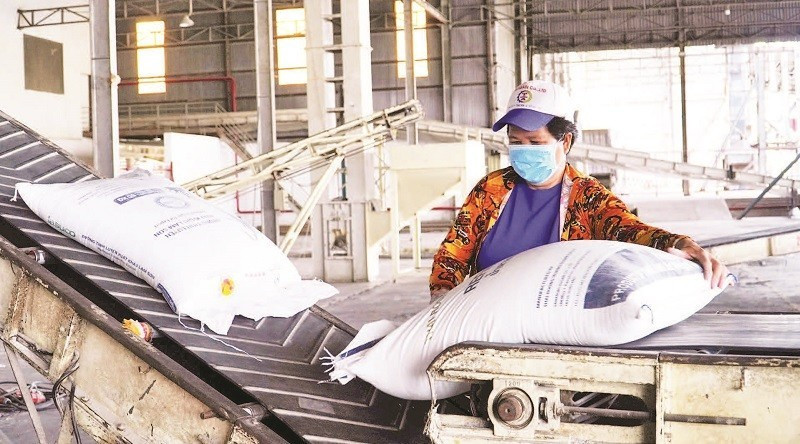Private economy support opens new opportunities for Mekong Delta firms
Resolution No. 68-NQ/TW (dated May 4, 2025) of the Politburo on private sector development has been enthusiastically welcomed by the business community. Numerous agricultural businesses in the Mekong Delta are proactively pushing ahead, accelerating and integrating into the global economy.

Businesses rising up
With tens of thousands of ongoing businesses and hundreds of trillions of VND in registered capital, the private sector in Can Tho City has been affirming its key role in GRDP growth. Many brands from cooperatives and production facilities have gradually made their way onto the shelves of major supermarket chains such as CoopMart, BigC, Vinmart, and Mega Market, supplying hundreds of tonnes of products each month.
The Mekong Delta city has created favourable conditions for businesses to participate in various trade promotion activities through trade fairs and exhibitions inside and outside the city, supply-demand connection conferences, and trade exchanges between provinces and cities. Products are showcased at retail points in Ho Chi Minh City, Ha Noi, and Phu Quoc special zone.
Typically, Ky Nhu Cooperative in Long Thanh commune, Can Tho City, currently offers 14 key products made from thac lac (Chitala ornata) fish. Nguyen Kim Thuy, Director of Ky Nhu Cooperative, shared that the unit now has over 50 members and a raw material area of about 16 hectares. It continuously improves and enhances product quality, boosts the application of science and technology, and particularly focuses on digital transformation in its production process. With support under Resolution No. 68-NQ/TW, the enterprise expects to become even more efficient.
Pham Tien Hoai, General Director of Hanh Nguyen Logistics Joint Stock Company, Can Tho City, said that Resolution No. 68-NQ/TW will open a new path for businesses to confidently expand their markets. Furthermore, the rapid completion of transport connectivity projects, ensuring quick and safe goods circulation and reducing costs, will enhance the competitiveness of companies investing in the Mekong Delta. Improving the investment environment and simplifying administrative procedures will help businesses make the most of their business opportunities.
“With determination, unity, and mutual support, the business community will overcome all challenges, stabilise production and business activities, and contribute to local economic development,” Hoai added.
Despite the achievements, the private sector still faces numerous difficulties and challenges, such as small business scale, limited competitiveness, difficulties in access to capital, and weak linkages among domestic enterprises as well as between domestic firms and the FDI and state-owned sectors. Notably, the startup and innovation ecosystem remains at its early stages.
New phase for Mekong Delta enterprises
Recently, Viet Nam’s rice industry has received encouraging news as 500 tonnes of Japonica rice, branded as “Low-Emission Green Vietnamese Rice,” entered the Japanese market for the first time. The rice was exported by Trung An High-Tech Agriculture Joint Stock Company in cooperation with MURASE Group (Japan). This is considered a significant milestone for the agricultural sector and an impressive advance in rice production by enterprises from the “land of nine dragons” (Mekong Delta).
Acknowledging the efforts of farmers, cooperatives, businesses, and agricultural officials, Deputy Minister of Agriculture and Environment Tran Thanh Nam expressed confidence that the shift in mindset towards sustainable rice production will generate considerable added value. The export of Viet Nam’s first low-emission rice batch to Japanese consumers carries great significance, paving the way for Vietnamese rice enterprises and offering the Mekong Delta a chance to reshape its rice production methods. It provides solutions to problems such as “bumper harvests, falling prices” by creating high-quality, branded rice.
Pham Thai Binh, Chairman of the Board of Directors and Deputy General Director of Trung An High-Tech Agriculture Joint Stock Company, revealed that the first low-emission rice shipment was exported to Japan at a price of 820 USD per tonne, compared to 650–700 USD per tonne in other markets. This favourable price helps both farmers and businesses continue pursuing high-quality, low-emission rice cultivation methods.
Binh noted that currently, Viet Nam’s supply of low-emission rice is insufficient to meet global demand. In the Japanese market, the potential for Vietnamese rice exports remains vast. According to Binh, in order to export this batch, businesses and farmers had to follow the strict standards set by the One Million Hectares of High-Quality Rice Project. Low emissions were just one of over 600 active substances required by Japan; meeting the country’s standards opens doors to many other countries.
Since 2020, Trung An Company has coordinated with MURASE Group to cultivate high-quality rice meeting Japanese standards. By the 2024–2025 phase, both sides have further collaborated, following the criteria of the One Million Hectares of High-Quality Rice Project with the dual goal of enhancing rice quality and ensuring environmental friendliness. This represents a solid path forward for the company, paving the way for robust development of the private sector in the Mekong Delta.








